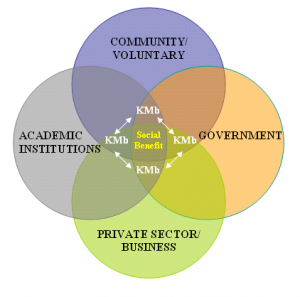More and more, the world of academic publishing is moving in the direction of open access avenues of dissemination. In fact, there is a draft Tri-Agency open access policy on the table as we speak (see also: Science.gc.ca Open Access and response to the draft policy). This proposed policy would require grant applicants to include plans for open access publishing of results and overall open data management within their grant applications. It’s something worth considering as the world of academic research and funding agencies appear to be heading in the open access direction. What’s also worth considering is the way in which we think about open access publishing. Reputable and distinguished open access journals are out there, but at the same time, there are tons more that aren’t worth your time or your money. The journals that fall in the latter category are often billed as “predatory journals” or “vanity publications.” Their main intent is to publish as many articles and journals as they possibly can, and take the money and run. And many don’t incorporate a true peer-review process, which can lead to all sorts of problems for the author down the road.
One way to avoid these types of predatory publishers is to begin by conducting your own investigation and evaluation. Below you will find some resources compiled by Western Libraries that will help you make an informed decision on where to find the most reputable open access publisher.
The following questions can be used as guidelines when you are evaluating open access journals.
Publisher level
Is the publisher a member of Open Access Scholarly Publishers Association (OASPA)? OASPA consists of a group of open access publishers, which are recognized for promoting and advocating open access publishing. Please see the list of OASPA members here. Newer publishers are not listed in OASPA, so it will be more appropriate to evaluate them based on their reputation in the related academic community.
Is the publisher a questionable open access publisher? Jeffrey Beall, an academic librarian at the University of Colorado Denver has compiled a list of predatory scholarly open access publishers in his blog. See his criteria for determining predatory open access publisher (2nd edition) here.
What is the mandate of the publisher of the journal? Is it for-profit or not-for-profit? The mandate of the publisher often can be found on their website. Not-for-profit publishers may have deeper commitment to open access, as they focus on scholarship and the dissemination of information rather than profit.
Journal level
Is the journal listed in the Directory of Open Access Journals (DOAJ)? DOAJ has an established quality control process to ensure the quality of the journals being included. For the selection criteria, please refer to their webpage.
Does the journal have an impact factor? How high is the impact factor? For some newer open access journals, impact factor may not be available.
Are the peer review guidelines posted on the journal’s website? Is it a blind peer review (or anonymous peer review) in which the reviewers’ and author’s identities are kept secret from each other? Or is it an open peer review in which the identities of the reviewers are transparent to the author? Blind peer review is traditionally considered as the trademark for scientific publishing.
How qualified is the editorial board of the journal? You can check the editorial board members’ profiles if they are available on the journal’s site, or you can do some research on their research backgrounds on the Internet.
Is the journal indexed in major databases or index services? Check Ulrichs Global Serials Directory and sometimes the journal’s website for that information.
How many issues have been published since the journal started? It is useful to review the current and past issues of the journal to get a quick snapshot of the publication history of the journal.
Article level
Check the authors of several articles published in several issues. Are these articles written by a single author or different authors? This can help to see the pool of article submittors of the journal.
Scan through some articles published in several issues. Does the content make sense? Are the articles well-written?
If the author is listed with some affiliation, check the affiliation’s background. If it is an institution or a university, is the affiliated institution or university a reputable one? Does it have a program in the field the article is written about? Check their website for this kind of information.
Check the total cites (number of times being cited by others) for some articles published in several issues. Are these articles being cited reasonably frequently by others in the field, given the time since they were published? There are different places where you can check the total cites for articles. Web of Science has total cites if the article is indexed there. If you need help finding this information, you can contact a subject librarian.


